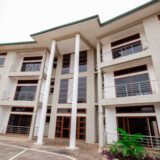Welcome to your complete guide to homeownership in Ghana, where we unlock the secrets of mortgage financing. Whether you are a first-time buyer or looking to invest in property, understanding the ins and outs of mortgage financing is essential.
In this comprehensive guide, we will take you through the process step-by-step, demystifying the complexities of obtaining a mortgage in Ghana. From understanding the different types of mortgages available to finding the right lender and navigating the application process, we have you covered.
At Floorspace Realty, we believe that everyone should have access to clear and reliable information when it comes to financing their dream home. That is why we have put together a guide to provide you with expert knowledge, and actionable insights that will empower you to make informed decisions.
Join us on this journey as we delve into the world of mortgage financing in Ghana and help you unlock the path to homeownership. Get ready to make your dreams a reality.
Floorspace Realty, your trusted partner in the homeownership journey.
Types of mortgage loans available in Ghana
Ghana offers various types of mortgage loans to cater to the diverse needs of homebuyers. Understanding these options will help you choose the most suitable mortgage for your circumstances.
Fixed-rate mortgages
A fixed-rate mortgage is a popular choice among homeowners in Ghana. With this type of loan, the interest rate remains constant throughout the loan term, providing stability and predictability in monthly payments. This can be advantageous for budgeting purposes, as you will not have to worry about fluctuating interest rates. Fixed-rate mortgages typically have terms ranging from 10 to 30 years.
Adjustable-rate mortgages
Adjustable-rate mortgages, also known as variable-rate mortgages, have interest rates that can fluctuate over time. These mortgages usually start with a fixed rate for an initial period, after which the interest rate adjusts periodically based on market conditions. While adjustable-rate mortgages often offer lower initial interest rates, they can be riskier due to the uncertainty of future rate adjustments.
Home equity loans
Home equity loans allow homeowners to tap into the equity they have built up in their property. This type of loan is ideal for those who need a large sum of money for specific purposes, such as home renovations or debt consolidation. Home equity loans provide funds based on the difference between the property’s market value and the outstanding mortgage balance.
Construction loans
If you are planning to build a new home in Ghana, a construction loan is what you will need. This type of mortgage provides financing for the construction process, and the loan converts into a traditional mortgage once the construction is complete. Construction loans often have higher interest rates and shorter terms compared to other types of mortgages.
Reverse mortgages
Reverse mortgages cater to the needs of senior citizens who want to convert their home equity into cash. This type of loan allows homeowners aged 60 and above to receive regular payments from a lender against the value of their property. The loan is repaid when the homeowner sells the property or passes away.
Understanding the different types of mortgage loans available in Ghana is crucial in determining which option aligns with your financial goals and circumstances. Now that we have explored the types of mortgages, let us dive into the eligibility requirements for mortgage financing in Ghana.
Eligibility requirements for mortgage financing
Obtaining a mortgage in Ghana requires meeting certain eligibility criteria set by lenders. While specific requirements may vary among lenders, here are some common factors that lenders consider when assessing mortgage applications.
Creditworthiness
Lenders evaluate your creditworthiness by reviewing your credit history, credit score, and credit report. A good credit score and a clean credit history indicate your ability to manage debt responsibly. Lenders prefer borrowers with a credit score of at least 650, but some may accept lower scores depending on other factors.
Employment and income stability
Steady employment and a reliable source of income are essential for mortgage approval. Lenders typically require borrowers to have a stable job and income for at least two years. They may request employment verification documents, such as pay stubs, tax returns, and employment contracts, to assess your income stability.
Down payment
Most lenders in Ghana require a down payment for mortgage financing. The down payment is a percentage of the property’s purchase price that you pay upfront. The minimum down payment varies among lenders, but it is generally around 20% of the property’s value. However, some lenders offer mortgage options with lower or higher down payment requirements, especially for first-time homebuyers.
Debt-to-income ratio
Lenders assess your debt-to-income ratio (DTI) to determine your ability to repay the mortgage. The DTI is calculated by dividing your total monthly debt payments by your gross monthly income. Lenders typically prefer borrowers with a DTI of 36% or lower.
Property appraisal
Before approving a mortgage, lenders require a property appraisal to determine its value. An independent appraiser assesses the property and provides an unbiased valuation report. The property must meet certain standards and be deemed suitable as collateral for the loan.
Meeting these eligibility requirements is crucial for securing mortgage financing in Ghana. Now that you understand what lenders look for, let’s move on to the steps involved in obtaining a mortgage loan.
Steps to obtaining a mortgage loan in Ghana
Obtaining a mortgage loan in Ghana involves a series of steps that require careful planning and preparation. By following these steps, you can increase your chances of securing a mortgage and streamline the application process.
Step 1: Assess your financial situation
Before applying for a mortgage, it’s important to assess your financial situation and determine how much you can afford to borrow. Consider your income, expenses, and other financial obligations to establish a realistic budget for your monthly mortgage payments.
Step 2: Research and compare lenders
Research different lenders in Ghana to find the one that offers the best mortgage terms and interest rates. Compare their offerings, including down payment requirements, interest rates, and repayment options. Additionally, read reviews and seek recommendations to ensure you choose a reputable lender.
Step 3: Gather necessary documents
Lenders require various documents to assess your eligibility for a mortgage loan. These documents typically include proof of income, bank statements, identification documents, tax returns, and employment verification. Gather these documents in advance to expedite the application process.
Step 4: Get pre-approved
Getting pre-approved for a mortgage loan can give you an advantage when house hunting. Pre-approval involves submitting an application to a lender, who will assess your financial information and provide a pre-approval letter indicating the loan amount you qualify for. This letter can make your offer more attractive to sellers.
Step 5: Find your dream home
Once pre-approved, it is time to find the perfect property. Work with a real estate agent or search online listings to explore different options. Consider factors such as location, amenities, and proximity to schools, hospitals, and other essential facilities.
Step 6: Complete the mortgage application
When you have found the property you want to purchase, complete the mortgage application with your chosen lender. Provide all requested documentation and ensure accuracy in the information provided. Any discrepancies or missing information may delay the approval process.
Step 7: Underwriting and approval
After submitting your application, the lender will review your financial information, conduct a property appraisal, and assess your creditworthiness. This process, known as underwriting, determines whether you meet the lender’s criteria for mortgage approval. If everything checks out, you will receive an approval letter, and the loan will move to the closing stage.
Step 8: Closing
At the closing, you will sign the mortgage loan documents and pay any remaining closing costs and fees. The property’s ownership will transfer to you, and the mortgage will officially start. Make sure to carefully review all documents before signing and seek clarification on any terms or conditions you don’t understand.
By following these steps, you’ll be well on your way to obtaining a mortgage loan in Ghana. However, it’s essential to have a solid understanding of interest rates and repayment options to make informed decisions. Let’s explore these aspects in the next section.
Understanding interest rates and repayment options
Interest rates and repayment options are crucial factors in mortgage financing. They determine the cost of borrowing and the structure of your monthly payments. Understanding these aspects will help you choose the most suitable mortgage for your needs.
Interest rates
Interest rates can be fixed or adjustable, as mentioned earlier. The rate you choose will depend on your risk tolerance and financial goals. Fixed-rate mortgages offer stability, as the interest rate remains the same throughout the loan term. Adjustable-rate mortgages can provide lower initial rates but may increase over time.
Repayment options
Mortgage loans typically offer different repayment options, allowing borrowers to choose the most convenient method for them. The two main repayment options are:
– Principal and interest (P&I): With this option, your monthly payments go towards both the principal amount borrowed and the interest charged. This allows you to gradually pay off the loan over the loan term.
– Interest-only: As the name suggests, interest-only mortgages require borrowers to pay only the interest for a specific period, usually 5 to 10 years. After this period, the monthly payments increase to include both principal and interest.
Choosing the right interest rate and repayment option is crucial in managing your mortgage payments effectively. Now that you understand these aspects, let’s explore how to choose the right mortgage lender in Ghana.
Choosing the right mortgage lender in Ghana
Choosing the right mortgage lender is essential for a smooth and successful homeownership journey. Consider the following factors when selecting a lender:
Reputation and experience
Research the lender’s reputation and experience in the mortgage industry. Look for reviews, customer testimonials, and ratings to gauge their credibility and track record. A reputable lender with extensive experience is more likely to provide reliable and efficient service.
Interest rates and fees
Compare interest rates and fees offered by different lenders. Lower interest rates can save you a significant amount of money over the life of your loan. Additionally, consider any additional fees, such as origination fees, closing costs, and prepayment penalties, which can impact the overall cost of your mortgage.
Customer service
Assess the lender’s customer service quality. Look for a lender that is responsive, attentive, and willing to address your concerns and questions. Good customer service ensures a smooth and transparent mortgage application process.
Flexibility and options
Consider the lender’s flexibility and the range of mortgage options they offer. A lender that offers a variety of loan products and repayment options can cater to your unique needs and financial situation.
Pre-approval process
Evaluate the lender’s pre-approval process. A smooth and efficient pre-approval process can give you a competitive edge when making an offer on a property. Look for lenders that offer quick pre-approval decisions and provide clear guidelines on the required documentation.
Choosing the right mortgage lender is crucial in securing favourable loan terms and a seamless application process. Now that we have discussed choosing a lender, let’s explore some tips for improving your chances of mortgage approval.
Tips for improving your chances of mortgage approval
Getting approved for a mortgage in Ghana requires careful preparation and attention to detail. Follow these tips to increase your chances of mortgage approval:
Improve your credit score
Maintain a good credit score by paying your bills on time, reducing your overall debt, and avoiding new credit applications. Review your credit report regularly to identify any errors or discrepancies that could negatively impact your creditworthiness.
Save for a larger down payment
While the minimum down payment requirement is typically around 20%, saving for a larger down payment can increase your chances of mortgage approval. A larger down payment demonstrates your commitment to homeownership and reduces the lender’s risk.
Minimize your debt
Reduce your existing debt as much as possible before applying for a mortgage. Lenders assess your debt-to-income ratio, so minimizing your debt can improve your chances of approval. Pay off credit card balances and other outstanding loans to lower your DTI.
Maintain stable employment
Lenders prefer borrowers with a stable employment history. Avoid changing jobs or careers shortly before applying for a mortgage. If you are planning a career transition, it’s best to wait until after securing a mortgage.
Avoid new credit applications
Avoid taking on new credit, such as credit cards or loans, shortly before applying for a mortgage. New credit applications can negatively affect your credit score and raise red flags for lenders.
Organize your financial documents
Gather all necessary financial documents, such as bank statements, pay stubs, tax returns, and identification documents, well in advance. Having these documents organized and ready will expedite the application process and demonstrate your preparedness.
By implementing these tips, you can strengthen your mortgage application and improve your chances of approval. However, it is important to be aware of common challenges and pitfalls in mortgage financing in Ghana. Let us explore them in the next section.
Common challenges and pitfalls in mortgage financing
Mortgage financing in Ghana can present various challenges and pitfalls that borrowers should be aware of. Understanding these potential roadblocks can help you navigate the process more effectively.
High interest rates
Interest rates in Ghana can be relatively high compared to other countries. This can result in higher monthly payments and increased overall borrowing costs. It’s important to consider and budget for these higher rates when planning for homeownership.
Limited loan options
The mortgage market in Ghana is still developing, and the range of loan options may be more limited compared to more mature markets. This can make it challenging to find a mortgage that perfectly aligns with your needs and preferences.
Lengthy approval process
The mortgage approval process in Ghana can be time-consuming. Lenders often require extensive documentation and conduct thorough assessments, leading to longer processing times. It is essential to be patient and prepared for potential delays.
Property valuation discrepancies
Property valuations in Ghana can sometimes vary significantly, leading to discrepancies between the purchase price and the appraised value. This can affect the loan amount you qualify for and potentially disrupt your financing plans. It is important to conduct thorough due diligence and have realistic expectations regarding property valuations.
Lack of transparency
Transparency in the mortgage process can sometimes be lacking, with hidden fees or unclear terms and conditions. It is crucial to carefully review all documents and seek clarification on any aspects you don’t understand. Working with a reputable lender and seeking professional advice can help ensure transparency throughout the process.
Being aware of these challenges and pitfalls can help you navigate the mortgage financing process more effectively. Now, let’s turn to expert advice on navigating the mortgage process in Ghana.
Expert advice on navigating the mortgage process
Navigating the mortgage process in Ghana can be a pivotal step toward achieving homeownership. Expert advice is key to ensuring a smooth and informed journey.
Begin by assessing your financial health, understanding your credit score, and establishing a realistic budget. Consult with a seasoned mortgage broker to explore tailored loan options. Prioritize pre-approval to enhance your negotiation stance.
Scrutinize terms, interest rates, and hidden costs in each mortgage offer. Legal counsel can decode complex contracts. With this expert-guided approach, navigating Ghana’s mortgage landscape becomes not just manageable but also a strategic move toward securing the ideal home financing solution.
Conclusion: Making your homeownership dreams a reality
Purchasing a home is a significant milestone in one’s life, and for many, it is a dream come true. However, the high cost of real estate in Ghana can make it challenging to achieve this dream without the assistance of mortgage financing.
Mortgage financing allows individuals to borrow money from a lender to purchase a property and pay it back over an agreed-upon period. By spreading out the cost of homeownership over several years, mortgage financing makes it more affordable for individuals to buy a home.
Additionally, mortgage financing allows individuals to build equity in their property over time, as their monthly payments contribute towards the principal loan amount. This can be a valuable asset in the long run, as it provides homeowners with financial security and the ability to leverage their property when needed.





